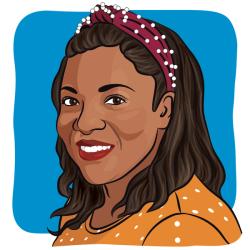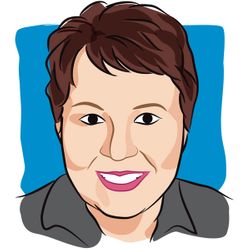- About
- Advertise / Support
- Contact
- CancerNetwork.com
- TargetedOnc.com
- OncLive.com
- OncNursingNews.com
- Terms & Conditions
- Privacy
- Do Not Sell My Information
© 2024 MJH Life Sciences™ and CURE - Oncology & Cancer News for Patients & Caregivers. All rights reserved.
What Do You Wish You Could Change About Cancer Care?

Ryan McDonald, Associate Editorial Director for CURE®, has been with the team since February 2020 and has previously covered medical news across several specialties prior to joining MJH Life Sciences. He is a graduate of Temple University, where he studied journalism and minored in political science and history. He considers himself a craft beer snob and would like to open a brewery in the future. During his spare time, he can be found rooting for all major Philadelphia sports teams. Follow Ryan on Twitter @RMcDonald11 or email him at rmcdonald@curetoday.com.
On social media, CURE® recently asked its readers to share their thoughts on what they wish they could change about cancer care.
Each week on Facebook, Twitter and Instagram, CURE® asks its readers to share their thoughts with the #CureConnect discussion question.
This past week, we asked: “What do you wish you could change about cancer care?”
Here’s what some of our readers shared:
- “More emphasis on survivorship and mental health care after cancer treatment is finished. Getting back to real life is not easy.” – H.VSJ.
- “Doctors informing you of what could happen next as your tumor grows. I am dealing with horrible leg pain because a tumor has impacted a muscle. If I was told years ago that this could happen, I would have spoken to a surgeon. I also needed to have two nephrostomy tubes placed. Again, if I was told that this would happen down the road, I would have spoken to a surgeon. While it would have been my sixth surgery and would not have cured me, it would have been well worth it.” – M.W.
- “More education for the patient, more follow up care after treatment especially concerning the mental health aspect.” – P.H.
- “That you have a mentor to hold your hand through your cancer journey, someone who walked the same path you are walking. I served as a Mentor Angel for 10 years to help others, I'm an 11-year survivor.” – J.J.
- “As both a former caregiver for my late husband who had CLL and a transplant (at age 45), and as a breast cancer patient myself (after he passed), I wish there was more concern and research on the impact of cancer care on caregivers and their young children.” – J.M.
- “Not being stifled by insurance for care.” – B.L-A.
- “We need help with dealing with the long-term side effects of treatments. I have survived 37 years, but they have not been normal or easy. I have been disabled for the past 13 years, I have to do my own research and I am tired of doing this alone.” – P.L.
- “The diagnostic phase works for me. The treatment phase works for me. The follow-up phase does not work for me. My recurrence was found by coincidence. Would like to have more quality time with my treatment team along with timely intervention if needed.” – N.D.
For more news on cancer updates, research and education, don’t forget to subscribe to CURE®’s newsletters here.
Related Content:



